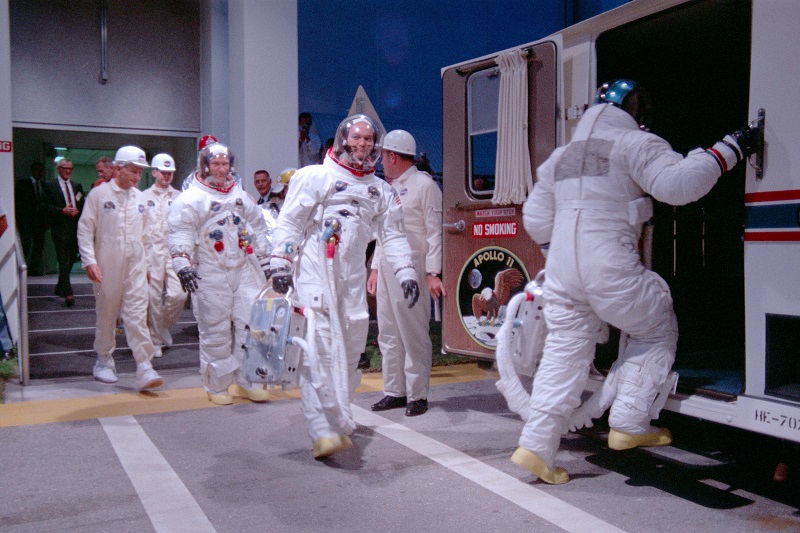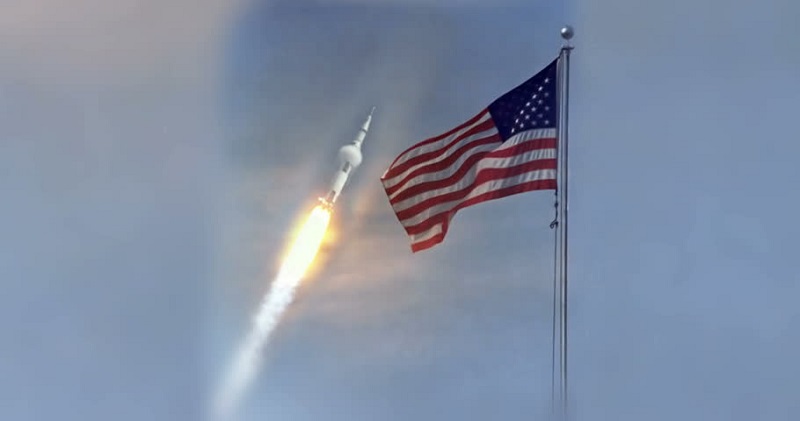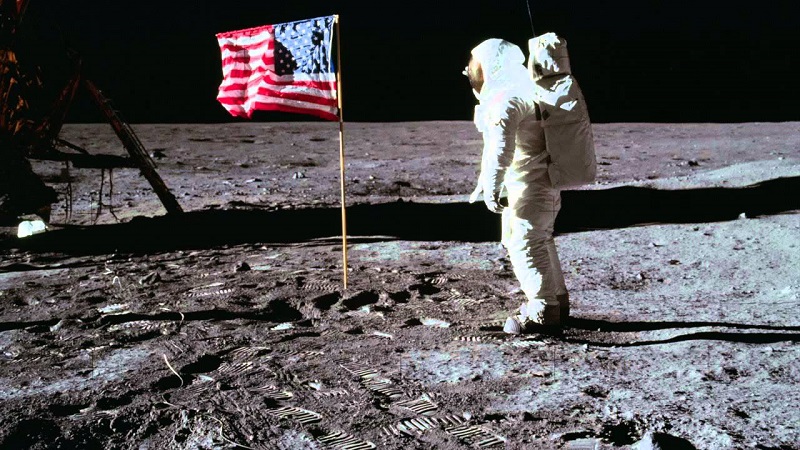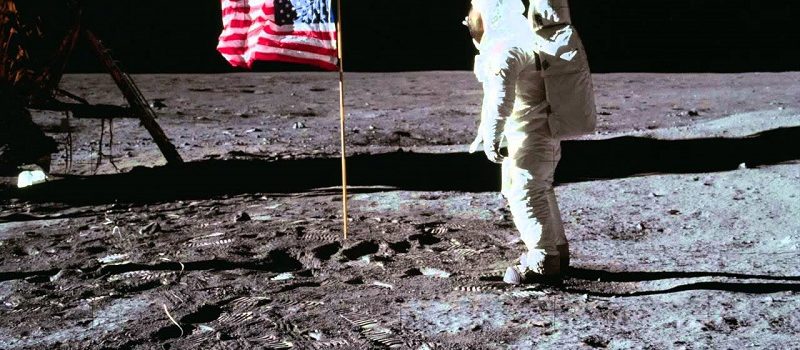I just came out of the extraordinary IMAX documentary, Apollo 11. There is so much to take away from the film, not the least of which is its astronomical breadth. But … a stunning realization occurs as well.

The scope of the film is vast and witnessing every facet of the moon mission on in IMAX with its out-of-this-world sonic succulence is a gift on two levels. It’s a love letter to the hundreds, if not thousands, of souls who put blood, sweat and tears into getting the United States to the moon first and—clearly most important—home safely. Apollo 11 is also a present of the highest order to the entity that is history and all those who are compelled, moved and inspired by it. Now that this documentary exists, it can be a continual reminder of what Americans can accomplish when we ignore what separates us and embrace an idea or an ideal that is larger than any single one of us. Working towards a common goal, there is nothing citizens of the United States of America can’t achieve when we set our collective minds to it.
I adore how Apollo 11 frames its “one small step for man, and one giant leap for mankind.” President John F. Kennedy, in an address as Rice University in Texas, stated that he had an aspiration for us as a country. The late, great, leader sought to send an American to the moon, have them walk the surface, and return home safely—all before the end of the decade. That was January of 1961. The successful moon mission launched July 16, 1969 and splashed down on July 24, 1969. That is mind-blowing! The science, technology and everything else that went into putting a man on the moon occurred in a span of eight-and-a-half years. That’s important to remember when this nation faces any of the more complex and thorny challenges of our time. From no idea how to send a man to the moon to success in under a decade.
“We choose to go to the moon. We choose to go to the moon in this decade and do the other things, not because they are easy, but because they are hard, because that goal will serve to organize and measure the best of our energies and skills, because that challenge is one that we are willing to accept, one we are unwilling to postpone, and one which we intend to win, and the others, too,” John F. Kennedy.
Think about what we could do with that same strength, perseverance, know-how and yes, leadership.
The power that is Apollo 11 could easily stand on its own without making any societal parallels. But that is not how my mind works. I couldn’t help but be immensely moved by Todd Douglas Miller’s film and mentally parlay what Buzz Aldrin, Neil Armstrong and Michael Collins achieved as they soared into the heavens and into the history books as a mirror to an immense challenge that is on the verge of strangling us as a society and as a globe.
Washington state governor Jay Inslee announced his candidacy for president of the United States of America last week and rightfully stated that he was the first person to run for the highest office in the land as the “climate change candidate.” Inslee reported that his entire campaign would be centered on the immediacy that is “defeating climate change.” Everything else that ails us, from economics to national security, can be framed as a global warming issue. The reality is that climate change is a national security issue. It is an economic issue. It is a health care issue. It. Is. Everything. Scientists have stated that if immediate action is not swift, it will be too late and the world we leave our children and their children will be inches away from uninhabitable.
That can be depressing to those of us who firmly believe the scientific warnings of the world’s best and brightest. I also believe that if we as a nation tackle the issue of climate change with the same verve, passion, determination and that uniquely American ideal of coming in first and being the best—climate change can exist in the dustbin of history. Inslee was right using the word “defeat.” This is an evil foe that needs to be defeated, taken down and knocked out. Look around us, waters are rising. Winters are colder and wetter. Summers are hotter and fiercer. Tornadoes and hurricanes are coming at us more ferociously and more frequently. Droughts are deadlier and costlier. Mother Nature is mad, heck … she is pissed off.

As seen in Apollo 11, America had a deadline (the end of the decade). America had a mission (put a man on the moon and bring him home safely). We came together from all walks of life and worked hard. I mean, really, really hard. Collectively, we made the impossible possible. In the process, we beat our fellow nuclear power, world stage-sharing enemy— the Soviet Union—to the moon. It was a move that was devastating to the USSR. I would even argue that that was the beginning of the beginning of the fall of communism. The taste of victory and triumph was so sweet.
I love the conclusion of the Apollo 11 documentary because filmmakers felt it important to show how much we as a country celebrated that success. Ticker-tape parades were held repeatedly across the country. Everyone, from every corner of our society, felt pride in our nation that had not been felt since the Germans and Japanese surrendered at the close of World War II. Sure, those three astronauts were the biggest heroes. But they were the bodaciously brave souls at the tip of the iceberg. Below the surface were countless souls who lifted them up higher than any human being had soared previously.
Again, Apollo 11 went from pipe dream to ticker-tape parade in 8.5 years. As many of those climatologists have stated, reversing the damage done to our home planet—or at the least altering or slowing down the warming—could take a whole lot of patience over several years. After witnessing Apollo 11, I was inspired and encouraged. As the father of a Kindergartner, I am repeatedly emotionally punched in the gut when thinking about what kind of world I am leaving her and worse, the landscape that her children, and their children, will occupy.
Seeing how complex and seemingly beyond the bounds of what is possible the effort was to get to the moon by the end of the 60s—as launched by JFK—there is a parallel to today that can easily be made. The mission to the moon was achieved with a level of priceless precision and urgency that is exactly what the world requires today to defeat climate change by the end of the 2020s.
Walking out of Apollo 11, I firmly believe that it can be done. We can save the world for our children and grandchildren.
This is in no way an endorsement of Governor Inslee and his campaign. But as he is the only one running for president in 2020 to make it the central cornerstone of their presidential aspirations, it is encouraging that whoever gets nominated on the Democratic Party side of things will firmly have defeating climate change on their platform and hopefully in the top three of their January 2021 priorities.

Some in congress and in the senate have presented a Green New Deal. That could be a start. America requires a new mission—a new Apollo 11. What Americans accomplished in Apollo 11 leaves me with the firm and absolute belief that there is nothing we cannot achieve when we put aside our differences and embrace our commonalities. Most importantly, Americans need to once again pour our blood, sweat and tears into a coast-to-coast endeavor to achieve what seems at the outset to be impossible.
Governor Inslee has made it his central campaign issue. With his presidential announcement, it struck me that his words echo what JFK stated in that iconic speech at Rice University. If we pour that same kind of 8.5-year-long ferocity that was applied to the space race, climate change could be a thing of the past.
We’ve done the impossible once already—see Apollo 11 and you too will be insanely inspired. There is no reason to think we cannot do it again.

